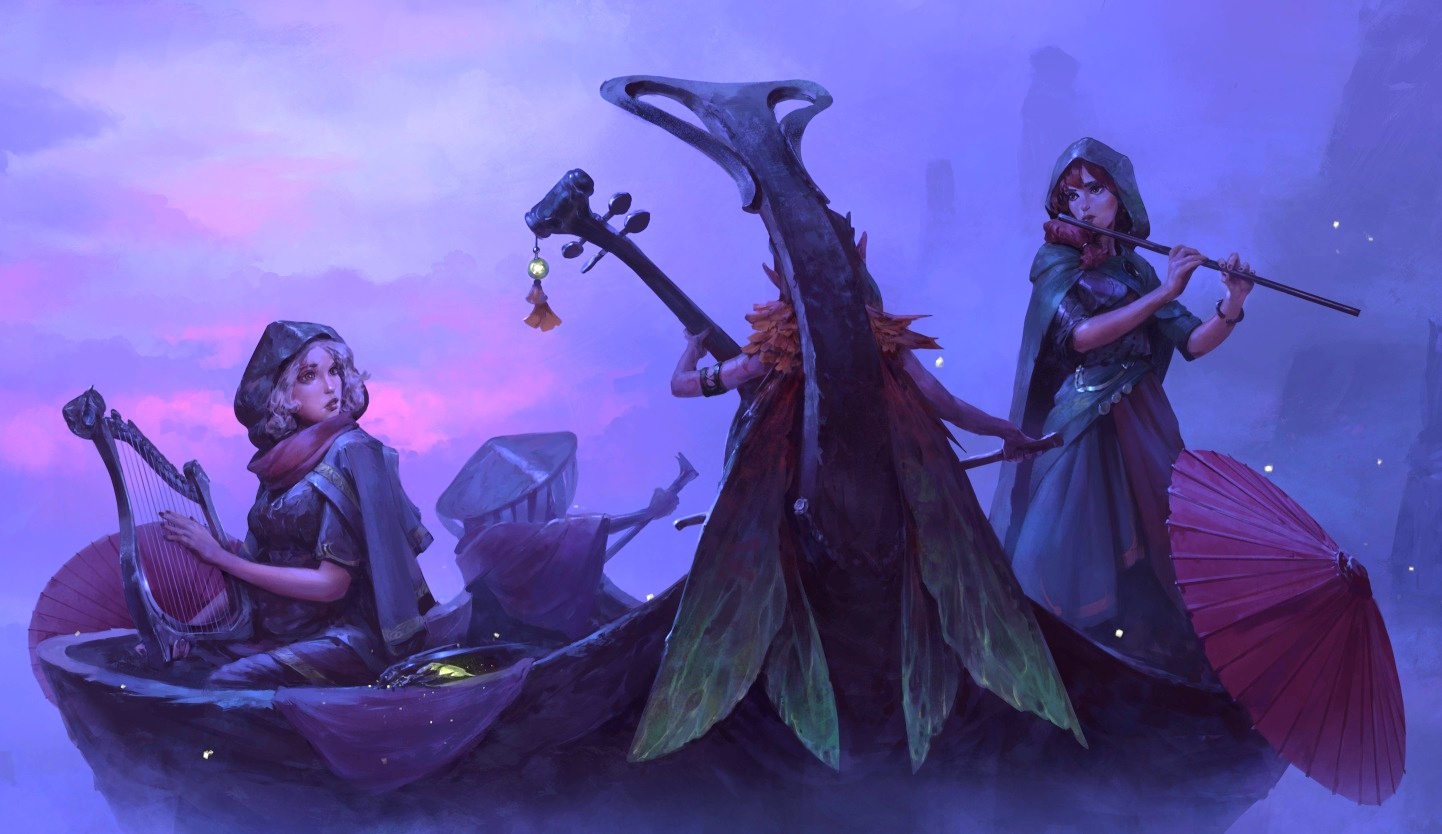Play Instrument (sage ability)
Play Instrument is an amateur-status sage ability in the study of Accompaniment, representing the character's skill in playing a traditional instrument. This is considered the musician's first and primary instrument, typically a mandolin, lute, violin, drum, horn or pipes — one that is lightweight, easy to maintain and well-suited for travel. The instrument chosen reflects what was taught by the musician's master, and once selected, only one instrument may be used for this ability.
Through training and experience, the musician has learned a repertoire of songs suited for different occasions — ballads, drinking songs, work songs, love songs and laments. This knowledge ensures the character can play competently in casual settings, often making music a familiar presence during the party's travels and campfires.
Performances
Once per thirty-day period, the musician may give a practiced performance, unveiling a newly learned and perfected song that captivates the audience. The pleasure and emotional resonance of the music instill well-being, confidence and clarity of mind, granting all listeners a +5% experience bonus for the next twenty-four hours. Because the musician chooses when to perform, this ability can be used before a battle, ahead of a dungeon expedition or at any critical moment where the party seeks an advantage. The performance must last half an hour and may be given while waiting on the battlefield (when martial songs would be appropriate) or, if the instrument allows, while advancing toward an enemy stronghold or dungeon entrance.
Each new venue offers a fresh audience, meaning the "once a month" requirement resets when performing for strangers. While the party itself may not benefit from repeated performances, new audiences still experience the same effect. However, a performance cannot be forced — an audience must be willing and receptive for the effect to take hold. An introduction by a proprietor or host is therefore required, ensuring the musician is recognised as a performer rather than an intrusive presence.
Other Musicians
| Settlement | Population | New Musician |
Time Period |
Performing Now |
|---|---|---|---|---|
| city | per 5,000 | 0-2 | weekly | 1-4 |
| town | 3,000+ | 0-1 | weekly | 1-3 |
| town | 1,000 to 2,999 |
0-1 | fortnightly | 0-2 |
| village | 500+ | 0-1 | bi-monthly | 1 chance in 8 |
As the table shows, it follows that player characters can seek out venues where skilled non-player musicians perform in order to obtain the same 5% experience bonus. This is indeed possible, and players are encouraged, when visiting a city, to find such places and enjoy the practical benefits of entertainment. However, the bonus can only be received once per month from any specific performer, regardless of their personal skill or style.
By traveling to larger population centers, players not only immerse themselves in the artistic culture of the setting but also gain a tangible experience boost, making such outings more than just social diversions. The random encounter of a musician or troupe during travel becomes an exciting prospect, offering real game benefits beyond mere flavour.
Music as Accompaniment
Various forms of performance provide the 5% experience bonus, including dance, acrobatics, poetry and acting. However, when a performance is accompanied by live music, the overall benefit increases to +8% instead of the lower individual bonuses. There is a 1 in 4 chance that any musician giving a public performance will have an accompanying performer. Player characters with musical skill may seek out, hire or partner with such individuals, ensuring a greater benefit for both audience and performer.
If two or more musicians perform together, the experience bonus is +6% rather than +8%, as the enhancement from accompaniment diminishes when the effect is purely musical rather than incorporating another performance art.
Expectation
Not every audience is impressed by an amateur — or even an authority-status musician. Members of the higher classes have heard every song an ordinary performer can play, making it difficult to win their admiration. Audience expectations vary, and a musician must be sufficiently skilled to exceed those expectations in order for their audience to receive the benefit of the performance.
As a general rule, audiences are rated from 1 to 100 based on their exposure to fine entertainment. To successfully impress them, the musician's knowledge points in their craft must exceed their expectations. A simple rule of thumb is that for every experience level of the audience, 6 knowledge points are required.
For example, to entertain a 12th-level lord, a musician would need at least 72 knowledge points in either musicianship or accompaniment to generate the bonus effect. While taverns and inns provide easy opportunities to impress, performing in grand halls, noble courts or elite gatherings demands a level of mastery few can attain.
See also,
Accompaniment (sage study)
Music (sage field)
